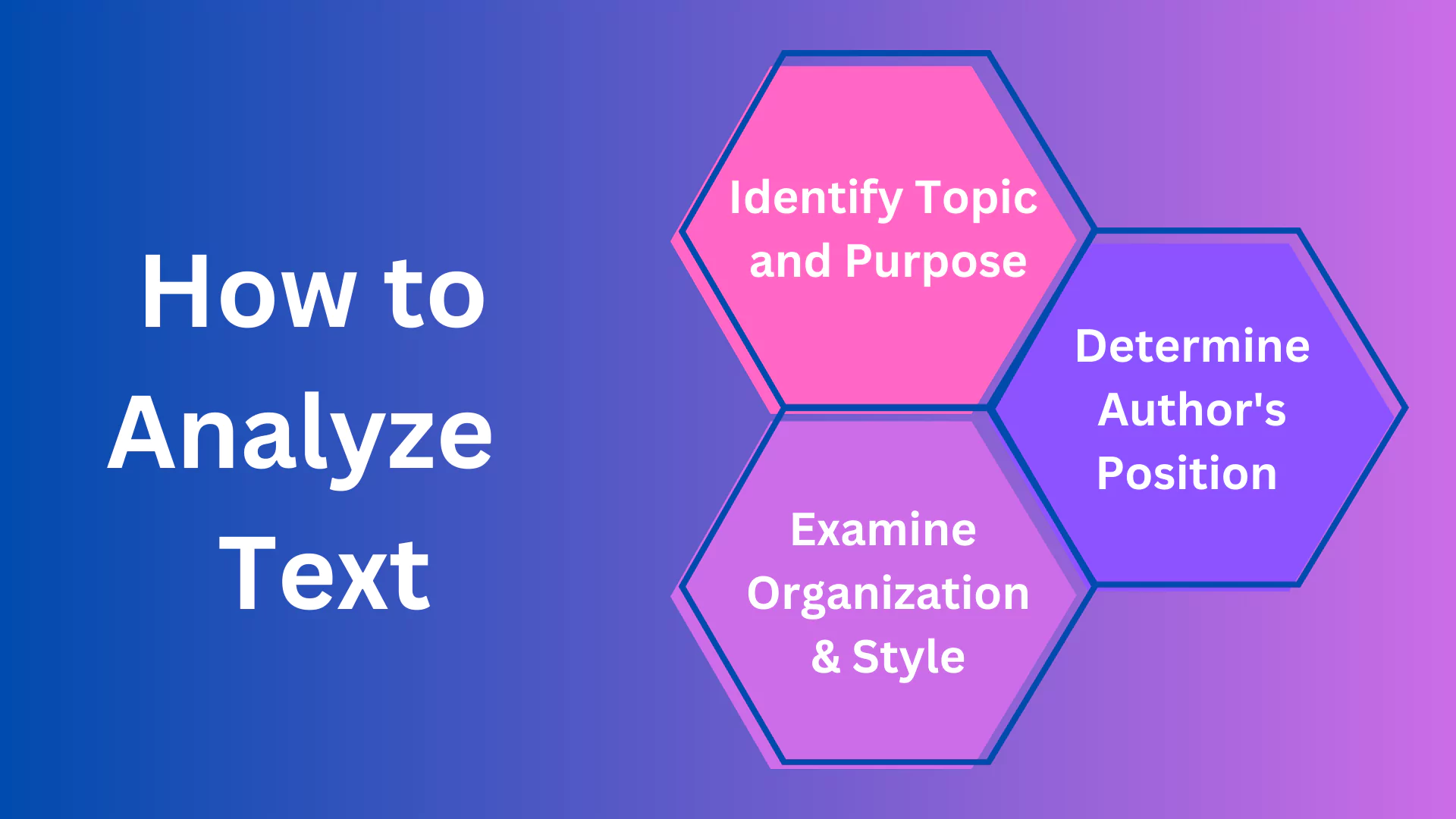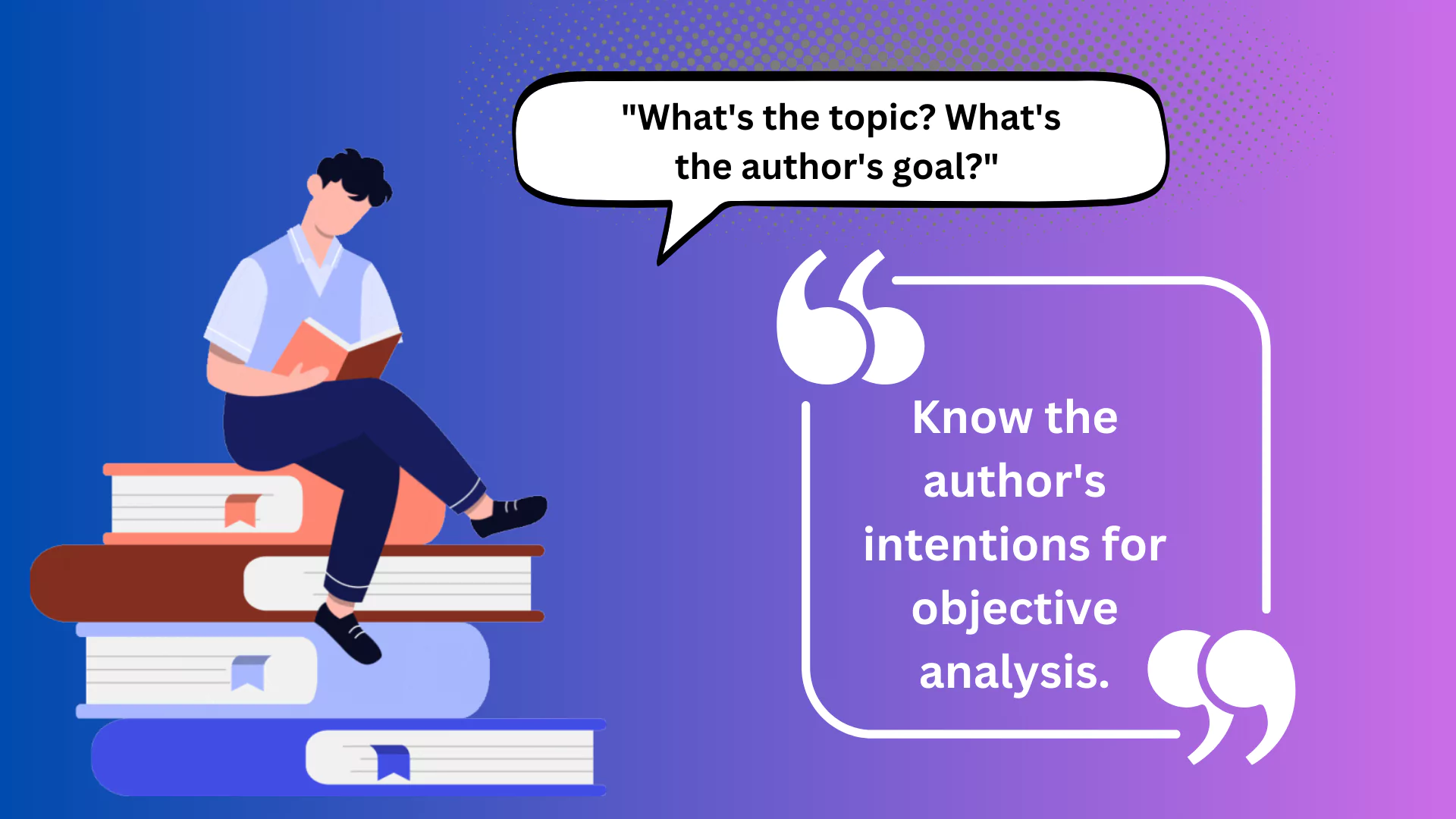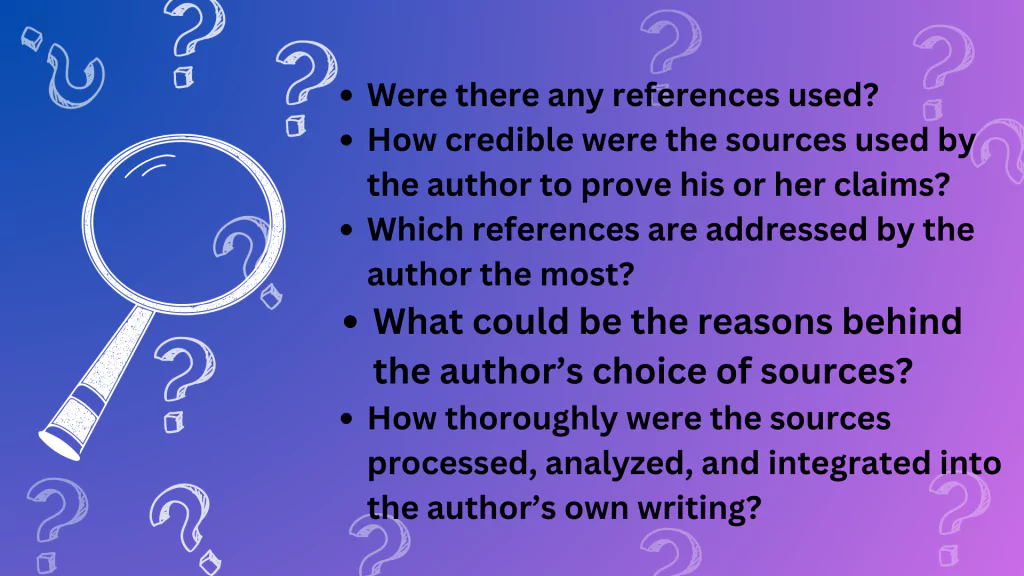Key Takeaways
- Understand the Topic and Purpose: Grasp the text’s subject and the author’s intent for an objective analysis.
- Assess the Author’s Position and Evidence: Determine the author’s viewpoint and evaluate the strength and credibility of their evidence.
- Evaluate Organization and Style: Examine how the text is structured and written, focusing on logic, clarity, and smooth transitions.
When it comes to analyzing a text, people usually approach this task from several angles. For example, you can analyze a text from the perspective of its social function: like whom it is aimed at, which important social problems it refers to, what public effect it seeks to achieve, and etc. But, besides these and others, there are more universal (and easier) methods, and today we will learn one of them.

✅ AI Essay Writer ✅ AI Detector ✅ Plagchecker ✅ Paraphraser
✅ Summarizer ✅ Citation Generator
Topic and Purpose

First of all, you must carefully read about the topic and understand what the text is about. A well-formulated topic should give you a clear vision of what the author is writing about, and what is his/her goal for writing a text. If it does not, the text is crap, and your analysis is over. Okay, just kidding. But really, this step is important, because the rest of your analysis depends on it: you cannot be objective if you do not clearly know the author’s intentions. Here’s a bad topic: “Fast food is bad.” A good topic would sound like, “Reasons why eating at KFC might damage your health.” Ask yourself questions such as, “Is this text explaining something? Answering a specific set of questions? Persuading? Introducing or summarizing new ideas?” and so on. Just make sure you are able to answer your own questions and be original, since most institutions tend to run papers through top plagiarism checkers.

Context
Knowing the context can be useful for understanding a text more fully. If you can find information about the author, the circumstances he or she wrote the text in, or certain events that caused the author to write it, you will have a more clear and detailed picture, allowing you to access the text objectively. As you can see, objectivity is a sacred cow for analysis. You might want to make this word your daily mantra or something.

Author’s Position
Many authors have a problem with expressing their personal opinion on a matter discussed in a text in a clear way. They can pile up facts and evidence, but behind all this you cannot see what the author thinks about the issue. Seek for the expressions of author’s personal position in the text; pay attention to whether the author includes and/or criticizes different points of view on the subject (and whether he or she juxtaposes them with one of his or her own); can you see a person behind the sentences, or the analyzed text is a faceless aggregate of facts and thoughts? At least call the author and ask, “Dude, what the heck was that text all about?” I bet he or she would be glad to help. Or they’ll call the police, you never know.
Level of Research and Proof
This one is probably the most important aspect to analyze. Proof or evidence does not necessarily imply appealing to authoritative sources, statistics, or other internal data; it rather means how well the author manages to convince you in his or her point of view, how solid and logical the statements he or she uses to back up their position are. Still, if the specifics of the analyzed text requires addressing some external sources, evaluate the quality of supporting evidence. How? Well, once again, you can start acting smart and ask yourself some helpful questions: were there any references used? How credible were the sources used by the author to prove his or her claims? Which references are addressed by the author the most? What could be the reasons behind the author’s choice of sources? How thoroughly were the sources processed, analyzed, and integrated into the author’s own writing? Are the author’s conclusions about the information from the sources grounded, logical, and consistent? What type of proof/evidence does the author use the most of all (for example, persuasion, statistics, etc.)? What piece of evidence/proof have you found the most and the least convincing, appropriate or out of place, and so on?

Organization and Style
This is what they often do in American schools: a student’s essay can be total bull…stuff, but to avoid frustrating a kid with a fair F grade (and to save themselves from angry mommies complaining), teachers make comments like, “Well, Josh, your grammar could be better, but the text is well-organized, so I gave you C instead of F.” As you can see from this example, organization matters, so you should pay attention to how the information is presented and organized. Is there logic in the way the author chooses to allocate their theses, arguments, claims across the text? Are all the abbreviations, terms, and so on clearly explained? Where does the author state their position on the discussed issue? What kind of organization does the author use (for example, chronological, by the rate of credibility or strength, and so on)? Evaluate the author’s style; is the text easy to read? Does he or she transition from one section of the text to another smoothly? What is their writing language like: easy-to-read, bulky, abstruse?
Answering the questions listed above will help you analyze any kind of text. It’s your way to becoming a guru of analysis. The described method is especially great because, although there may be nuances depending on the text itself, it still works out well for the majority of papers. You can act brave and try inventing your own set of criteria for analysis too (just make sure it’s not something like, “I didn’t like the text, so it’s crap”). Good luck!
Read more:
English 101 Research Paper Topics
Follow us on Reddit for more insights and updates.




Comments (0)
Welcome to A*Help comments!
We’re all about debate and discussion at A*Help.
We value the diverse opinions of users, so you may find points of view that you don’t agree with. And that’s cool. However, there are certain things we’re not OK with: attempts to manipulate our data in any way, for example, or the posting of discriminative, offensive, hateful, or disparaging material.